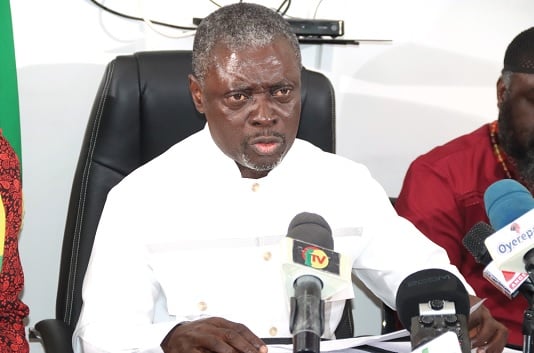The Ghana Union Movement (GUM) has emphatically denied any involvement in a planned demonstration against the suspension of Chief Justice Gertrude Sackey Torkornoo. The protest, scheduled for Monday, May 5, 2025, is being organized by a coalition of four political parties – the New Patriotic Party (NPP), the Liberal Party of Ghana (LPG), the National Democratic Party (NDP), and the People’s National Party (PNP). These parties are protesting the suspension, arguing that it undermines the constitutional order and judicial independence. GUM, however, has clarified that it was neither consulted nor involved in any planning meetings related to the demonstration, and has instructed its members not to participate. The party, through its General Secretary, Anthony Gold Ahinful, issued a statement stressing its commitment to upholding the rule of law and advocating for the resolution of the Chief Justice’s situation through established legal processes, not through street protests. GUM explicitly disavowed any media reports linking it to the planned demonstration, characterizing such reports as false and without merit.
The controversy surrounding Chief Justice Torkornoo began with the submission of three separate petitions calling for her removal. These petitions led President John Dramani Mahama to initiate an investigation under Article 146(6) of the 1992 Constitution. Following the establishment of a prima facie case, and after consultations with the Council of State, the President suspended the Chief Justice on Tuesday, April 22, 2025. A five-member committee has been formed to further investigate the allegations contained in the petitions. The suspension and the subsequent formation of the investigative committee are the triggers for the upcoming protest organized by the four political parties.
The four parties organizing the protest – NPP, LPG, NDP, and PNP – view the suspension of the Chief Justice as a direct threat to the independence of the judiciary and the constitutional balance of power. Their decision to hold a demonstration stems from a belief that the President’s actions are an overreach of executive authority and a dangerous precedent. They contend that protesting is a necessary measure to safeguard the integrity of the judicial branch and uphold the principles of democratic governance. The emergency meeting held on Thursday, April 24, 2025, solidified their resolve to take to the streets and voice their opposition to the Chief Justice’s suspension.
GUM’s stance, however, emphasizes adherence to legal processes and discourages participation in street protests. The party believes that the proper venue for addressing the Chief Justice’s situation is within the established legal framework. By urging its members to abstain from the demonstration, GUM aims to distance itself from the political theatrics and advocate for a more measured and legally sound approach to resolving the issue. The party’s statement reinforces its commitment to respecting the rule of law and seeking solutions within the bounds of the constitutional process.
The contrasting approaches of the protesting parties and GUM highlight the diverse perspectives on how to address the Chief Justice’s suspension. While the four parties see street protests as a necessary tool to defend constitutional principles, GUM believes that adhering to established legal procedures is the most effective and appropriate way to address the situation. This difference in approach reflects the broader spectrum of political ideologies and strategies within Ghana’s political landscape.
The upcoming protest and GUM’s public disavowal of it sets the stage for a potentially significant political event in Ghana. The outcome of the investigation into the Chief Justice and the subsequent public reaction will likely have far-reaching implications for the country’s judicial system and the balance of power between the different branches of government. GUM’s decision to distance itself from the protest positions the party as an advocate for due process and adherence to legal procedures, a stance that may resonate with a segment of the population concerned about the potential for political instability and extra-legal actions.


